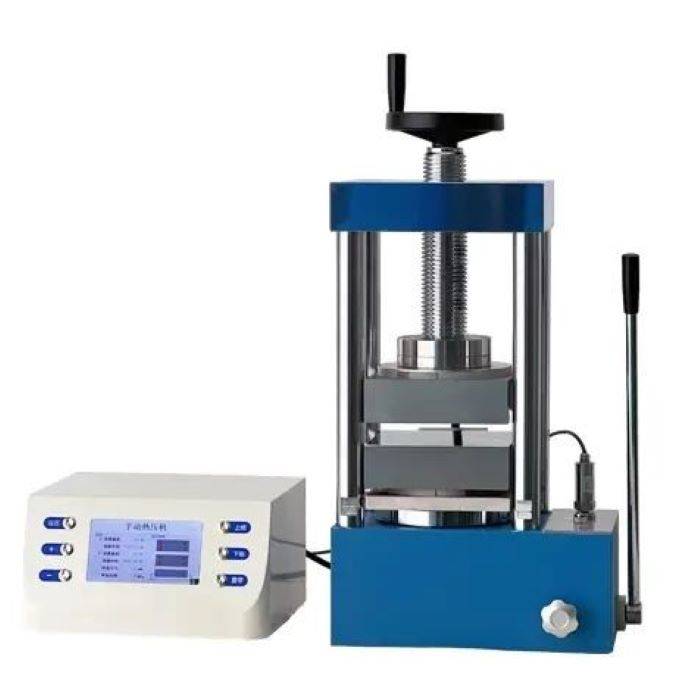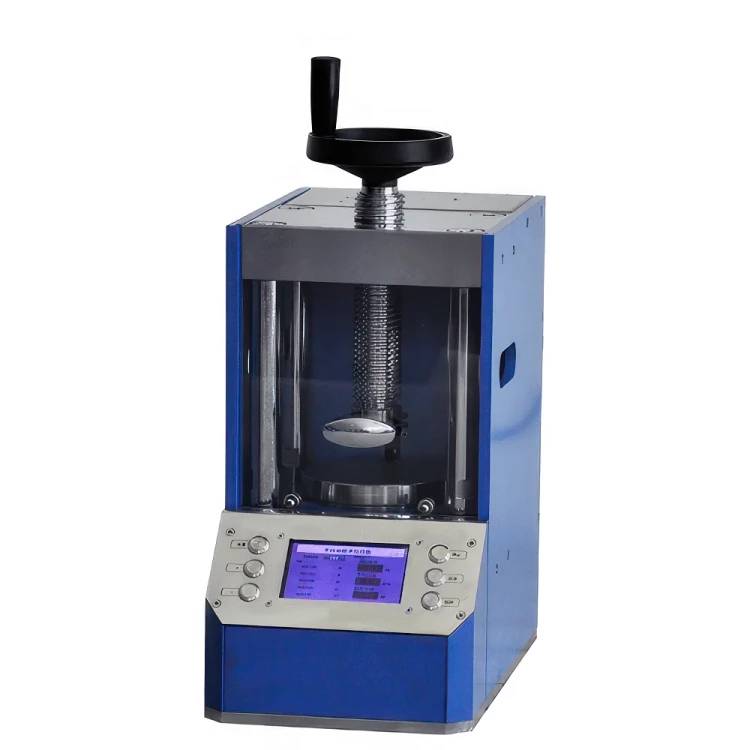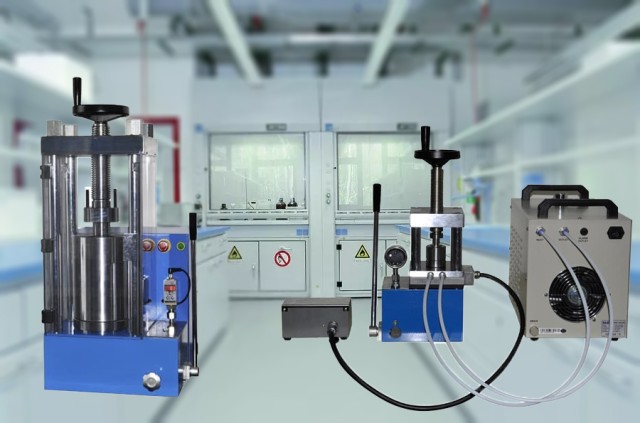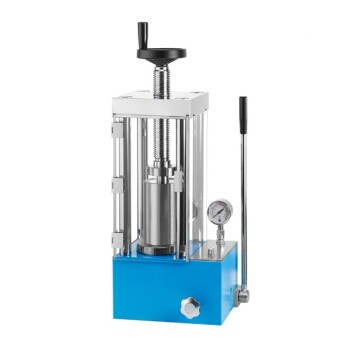Introduction
When it comes to laboratory equipment, the type of press used can make a significant difference in the results obtained. Hydraulic and mechanical presses are two commonly used types of presses, each with its own set of advantages and disadvantages. Hydraulic presses use hydraulic cylinders to apply force, while mechanical presses use a mechanical lever or cam to apply force. In this blog post, we will explore the differences between hydraulic and mechanical presses, the advantages of each type, and factors to consider when choosing the right type of press for your laboratory.
Table of Contents
Differences Between Hydraulic and Mechanical Presses
When it comes to laboratory equipment, hydraulic presses and mechanical presses are two types of machines that are used to apply pressure to materials for various purposes. However, there are differences between the two types of presses that make them more suitable for specific applications. In this section, we will explore the various differences between hydraulic and mechanical presses.
Power Source
The main difference between hydraulic and mechanical presses is their power source. Hydraulic presses use hydraulic cylinders to apply force, while mechanical presses use a motor and flywheel to generate energy that is transferred to the material through a ram. This difference in power source affects the way the press applies pressure to the material.
Force Application
Hydraulic presses are typically more powerful than mechanical presses, and they can apply force in a more controlled manner. Hydraulic presses can apply force over a longer stroke, which makes them ideal for deep-drawing and forming operations. In contrast, mechanical presses apply force over a shorter stroke, which makes them better suited for punching, blanking, and other operations where a high force is required for a short time.
Speed
Mechanical presses are generally faster than hydraulic presses due to their flywheel and motor design. They can deliver a higher number of strokes per minute than hydraulic presses, which makes them more suitable for mass production operations that require a high output rate. However, hydraulic presses are more versatile and can be adjusted to operate at different speeds to suit specific applications.
Maintenance
Hydraulic presses require more maintenance than mechanical presses due to their complex hydraulic systems. Hydraulic systems need regular checks for leaks and fluid contamination, and the hydraulic fluid needs to be changed regularly. In contrast, mechanical presses are simpler and require less maintenance.

Cost
Hydraulic presses are generally more expensive than mechanical presses due to their complex hydraulic systems. In addition, they require more maintenance, which adds to the overall cost of ownership. Mechanical presses are generally less expensive and require less maintenance, making them a more cost-effective option for some laboratory applications.
In conclusion, both hydraulic and mechanical presses have their advantages and disadvantages. The choice between the two types of presses ultimately depends on the specific needs of your laboratory and the materials you will be working with. For applications that require high force and precision, a hydraulic press may be the better choice, while for applications that require high speed and low cost, a mechanical press may be sufficient. It is important to carefully consider the various differences between hydraulic and mechanical presses before making a decision on which one to choose for your laboratory.
Advantages of Hydraulic Presses
Hydraulic presses are becoming increasingly popular in laboratory settings due to their numerous advantages. In this section, we will discuss the key benefits of using hydraulic presses over mechanical presses.
High Force Generation with Minimal Effort
One of the primary advantages of hydraulic presses is their ability to generate high levels of force with minimal effort. This is achieved through the use of hydraulic fluid, which is pressurized and used to move a piston or plunger that exerts force on the material being tested. Compared to mechanical presses, hydraulic presses offer a smoother and more controlled force application that is ideal for many laboratory applications.
Precision and Accuracy
Hydraulic presses are known for their precision and accuracy, as they can be easily controlled to apply a specific amount of force over a specific period of time. This makes them ideal for tasks such as compression testing, where the force needs to be carefully monitored and controlled. Hydraulic presses also offer the ability to apply force at a constant rate, resulting in more accurate and consistent test results.
Durability and Low Maintenance
Another advantage of hydraulic presses is their durability and low maintenance requirements. Hydraulic presses have fewer moving parts than their mechanical counterparts, which makes them less prone to wear and tear. Additionally, hydraulic presses do not require frequent lubrication or adjustment, which reduces maintenance time and costs.

Safety
Hydraulic presses also offer enhanced safety features compared to mechanical presses. For example, hydraulic presses have overload protection, which prevents the press from exceeding its maximum force capacity. Additionally, hydraulic presses are designed with safety features that prevent the operator from coming into contact with the press during operation.
In conclusion, hydraulic presses offer several advantages over mechanical presses, including high force generation with minimal effort, precision and accuracy, durability and low maintenance, and enhanced safety features. These benefits make hydraulic presses an ideal choice for many laboratory applications.
Advantages of Mechanical Presses
Mechanical presses offer a range of advantages that make them a popular choice in the laboratory industry. The following are some of the key advantages of mechanical presses:
Versatility and Customization
One of the key advantages of mechanical presses is their versatility. They offer a wide range of force capacities, making them suitable for a variety of laboratory applications. They can also be customized to fit specific requirements, allowing for greater flexibility in the lab.
Durability
Mechanical presses are known for their durability. They are built to withstand the wear and tear of daily use in the laboratory, making them a reliable choice for long-term use.
Accuracy and Repeatability
Mechanical presses are known for their accuracy and repeatability, ensuring that test results are consistent and reliable. This is particularly important in laboratory testing, where precision is essential.

Minimal Maintenance
Mechanical presses require minimal maintenance, reducing downtime and increasing productivity. This is particularly important in laboratory settings, where time is often of the essence.
Ease of Use
Mechanical presses are relatively easy to operate, making them accessible to a wide range of laboratory personnel. This reduces the need for specialized training, allowing for more efficient use of laboratory resources.
Consistency and Reliability
Mechanical presses offer consistent and reliable performance, ensuring that test results are accurate. This is essential in laboratory testing, where even small variations in results can have significant consequences.
Overall, mechanical presses are an excellent choice for laboratories that require reliable, precise, and versatile equipment. While hydraulic presses may offer some advantages in terms of force capacity and speed, mechanical presses remain a popular choice due to their durability, accuracy, and ease of use.
Factors to Consider When Choosing
When choosing between hydraulic and mechanical presses for laboratory use, there are several factors that need to be considered to ensure that the right press is selected for the laboratory's specific needs.
Type of Materials Being Tested
One of the most important factors to consider when choosing between hydraulic and mechanical presses is the type of materials being tested. Hydraulic presses are better suited for high-pressure applications, making them ideal for materials that require a lot of force to be applied. Mechanical presses, on the other hand, are better suited for lower-pressure applications, making them ideal for materials that require a lower force to be applied.
Required Force and Accuracy
The required force and accuracy also need to be considered when choosing between hydraulic and mechanical presses. Hydraulic presses offer higher accuracy and precision, making them ideal for applications that require a high level of accuracy. Mechanical presses, on the other hand, sacrifice accuracy and precision for speed and efficiency, making them ideal for applications that require a faster processing time.
Available Space
The available space in the laboratory also needs to be considered when choosing between hydraulic and mechanical presses. Hydraulic presses tend to be larger and require more space than mechanical presses. If space is limited, a mechanical press may be the better option.
Budget
Budget is another important factor to consider when choosing between hydraulic and mechanical presses. Hydraulic presses tend to be more expensive than mechanical presses. However, they offer higher accuracy and precision, making them ideal for applications that require a high level of accuracy. Mechanical presses are generally more affordable but may sacrifice accuracy and precision.

In summary, when choosing between hydraulic and mechanical presses for laboratory use, laboratories should consider the type of materials being tested, the required force and accuracy, available space, and budget. By carefully evaluating these factors and consulting with equipment experts, laboratories can ensure that they are selecting the right press for their needs.
Conclusion
In summary, both hydraulic and mechanical presses have their unique advantages and disadvantages. Hydraulic presses are ideal for applications that require a high level of force and pressure, while mechanical presses are ideal for applications that require high precision and accuracy. When choosing between the two, it's important to consider factors such as the material being pressed, the required force, speed, and precision, as well as the cost. Ultimately, the right press for your laboratory will depend on your specific needs and requirements. By understanding the differences between the two types of presses, you can make an informed decision and choose the one that will help you achieve the best results.
Related Products
- Manual Lab Heat Press
- Laboratory Manual Hydraulic Pellet Press for Lab Use
- 24T 30T 60T Heated Hydraulic Press Machine with Heated Plates for Laboratory Hot Press
- Laboratory Manual Hydraulic Pellet Press for Lab Use
- Automatic Laboratory Hydraulic Pellet Press Machine for Lab Use













